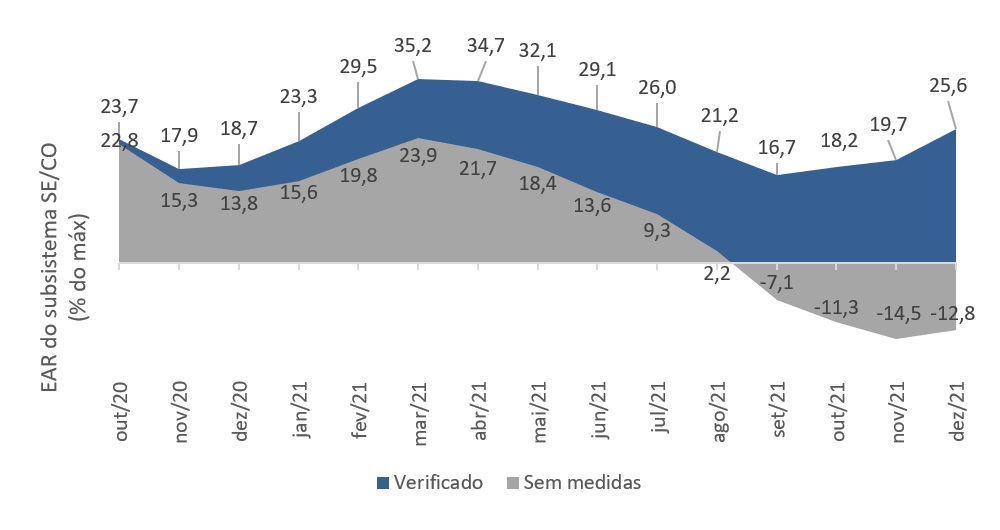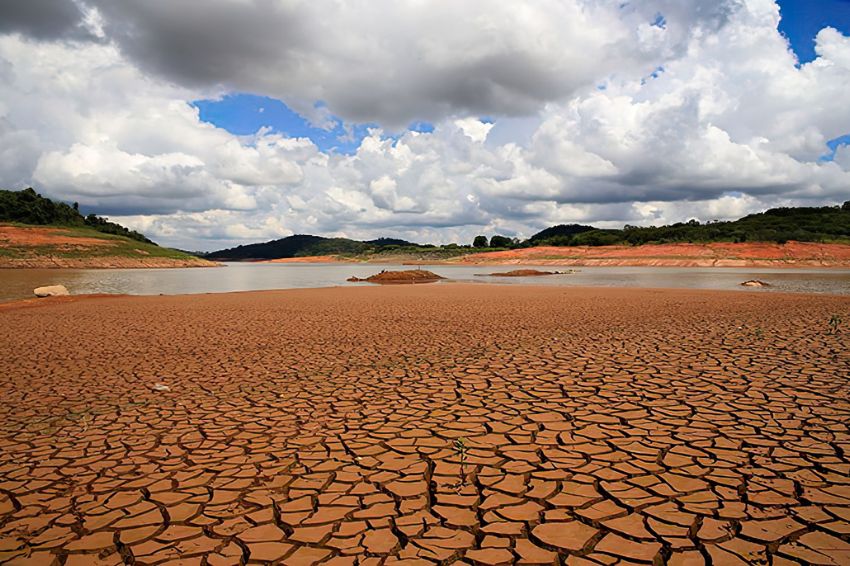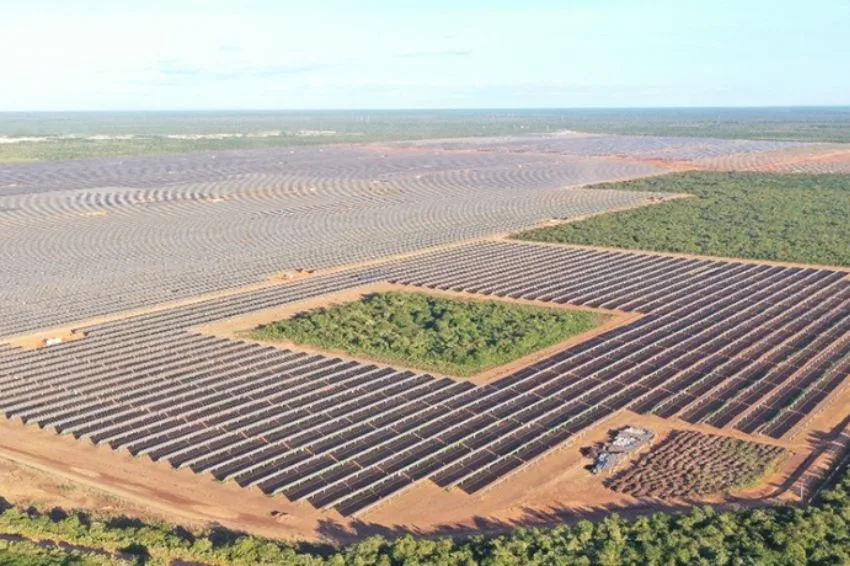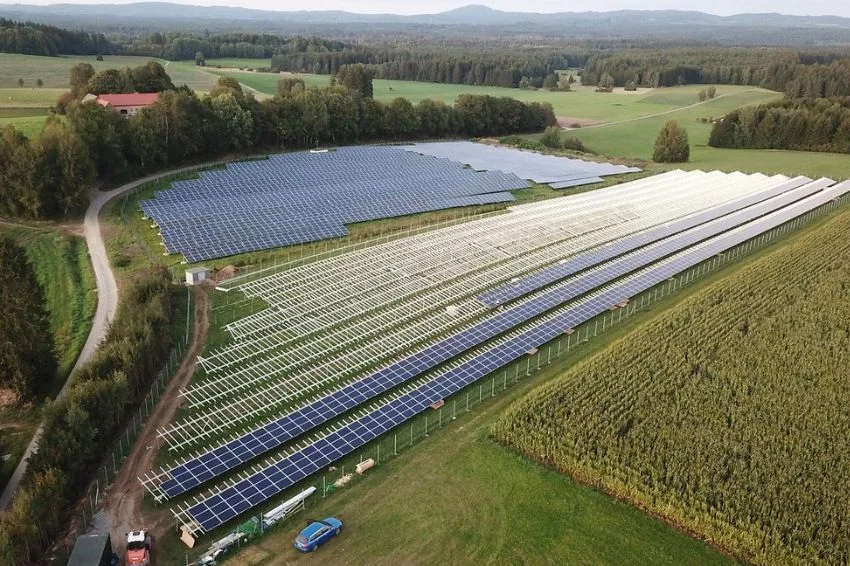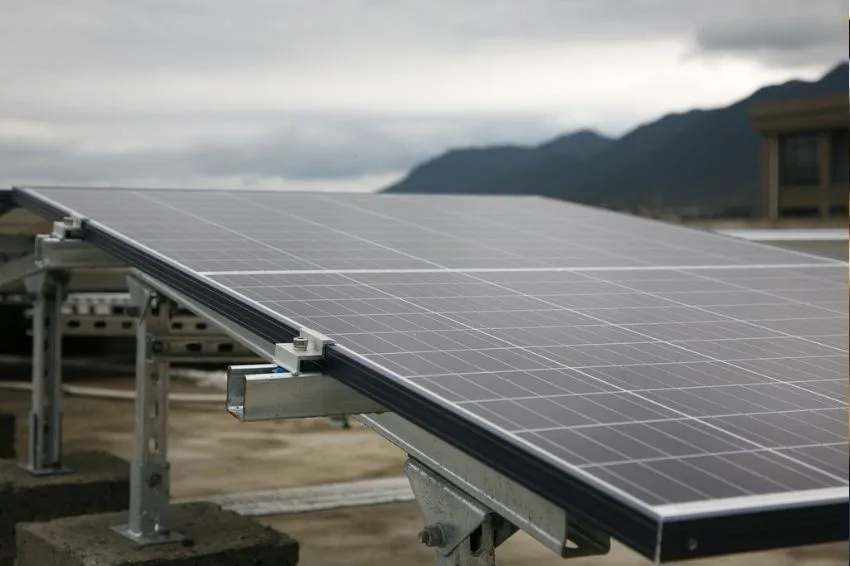O ONS (National Electric System Operator) calculated that the relaxation of hydraulic restrictions and transmission limits, during the water crisis experienced in Brazil during the years 2020 and 2021, generated a savings of R$ 26.9 billion in the cost of the operation.
“The proposal to relax hydraulic restrictions was necessary due to the reservoir inflows being among the worst in history,” said the Operator.
Prospective studies carried out by the ONS indicated that, even with generation minimized in the main SIN (National Interconnected System) plants, their storage levels would show a marked reduction.
This factor led the Operator to propose making the minimum flows of some of these hydroelectric plants more flexible, in order to store a greater quantity of water throughout the upstream cascade.
Part of these requirements, however, were linked to environmental issues or the multiple use of water, requiring in-depth assessments, aiming to reduce the impacts on the implementation of these initiatives and increase synergy between the entities directly involved in the management of the electricity sector.
“In this way, it was possible to implement, among other actions of great importance, the flexibility of the minimum flows at the Jupiá and Porto Primavera, Ilha Solteira and Três Irmãos plants, in the Southeast, in addition to the reduction of flows at the São Francisco river cascade plants. , in the Northeast”, they exemplified.
With these measures, it was possible to preserve around 4.1% of the stored energy of the Southeast/Mid-West subsystem, which concentrates around 70% of the water used by the reservoirs.
Renewable energy is vital to minimize water crisis and high tariffs
“It is also worth highlighting that reducing the flow rate at a given plant is only the starting point of the strategy, since, by reducing the flow rate in the projects at the end of the cascade, all the plants behind it can also reduce their flow rate and consequently lead to even greater gains”, pointed out the Operator.
“But you may wonder: if the flow and generation were reduced in several hydroelectric plants in the cascades where the flexibility took place and the load remained unchanged, how did the ONS guarantee supply? This is another side of the gains from the set of exceptional actions implemented”, they commented.
According to the Operator, it was possible to increase thermal generation and energy imports, which would not have been possible to be used without these measures, maintaining the load-generation balance and the greater preservation of the reservoirs that was sought.
“Considering that these measures preserved the reservoirs to guarantee supply at a time of even more severe shortages, when thermal plants with CVU of up to R$ 2,500 R$/MWh were being dispatched, it is possible to estimate that this measure brought a benefit of the order of R$ 15.8 billion for Brazilian consumers”, they reported.
Actions to combat the crisis
In total, the ONS, sector institutions and agents mobilized 35 lines of action to combat the crisis which, together, were essential to guarantee the country's energy supply.
“The comparison of verified storage with the hypothetical scenario without the implementation of the 35 lines of action is presented in the figure below and highlights how important these measures were to guarantee the country's energy supply”, they concluded.
